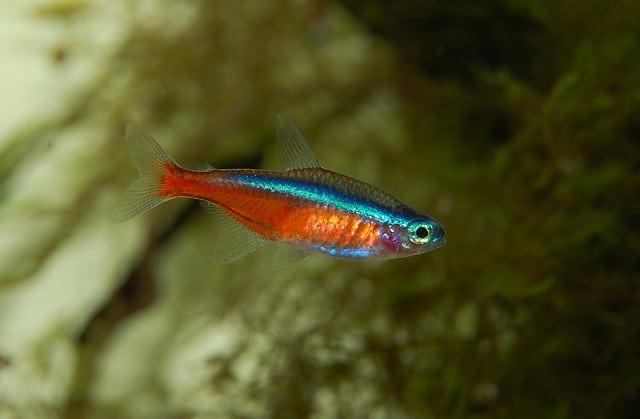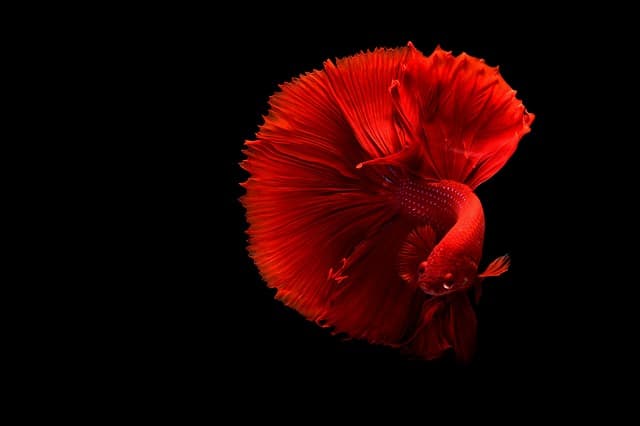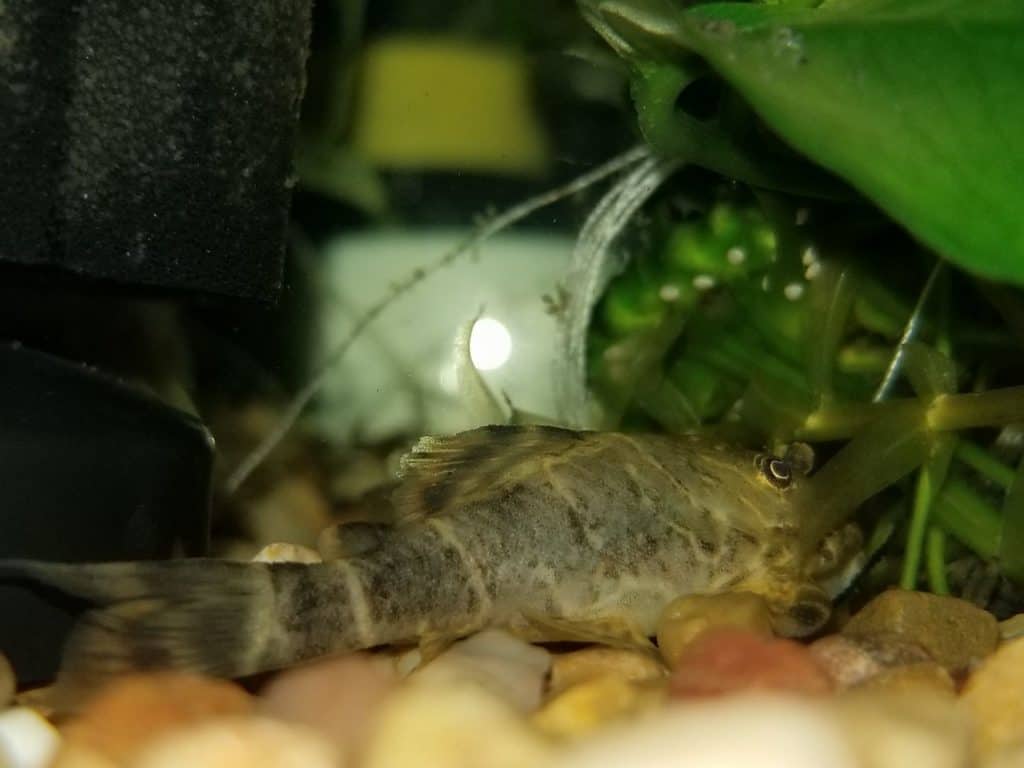Oscar fish, like most other fish, will often open their mouths slightly. It can be worrisome if you notice your Oscar fish is opening its mouth widely, especially if it appears it’s gasping for air. So why do Oscar fish open their mouths wide?
When an Oscar fish opens its mouth wide, it most commonly means that it’s stressed, hungry, or not getting enough oxygen. If this behavior is noticed, the oxygen levels in the aquarium should be checked promptly. Lack of oxygen can quickly become fatal.
The article below will give you an in-depth understanding of why your Oscar fish keeps opening its mouth so wide, including when you should be worried. Continue reading to avoid missing signs that your Oscar fish could be in danger and learn more about how to keep Oscars healthy and safe in captivity.
Reasons Oscar Fish Open Their Mouths Wide
There are several reasons your Oscar fish could be opening its mouth wide. However, it generally isn’t a sign of anything serious, unless you notice that the behavior is becoming frequent.
If your Oscar fish is opening its mouth wide frequently, it’s likely a sign of a more severe problem. For example, it could be a sign of ammonia poisoning due to essential elements being unlevel in their tank.
One of the most common and severe reasons that your Oscar fish could be opening their mouth wide is that it’s not getting enough oxygen from the water in the tank.
If you suspect this is the cause, you should check the oxygen level in your Oscar’s tank immediately. Being deprived of the proper amount of oxygen could kill a fish within a day.
If your Oscar fish is opening its mouth wide because it’s not getting enough oxygen, it’ll generally be accompanied by other signs. These signs include:
- Decreased movement
- Gasping at the top of the tank (could look like when you feed it)
- Slow/shallow breathing
- Rapid gill movement
If your Oscar fish shows any of the signs above, you can check the dissolved oxygen levels using a dissolved oxygen meter.
What Causes Low Oxygen in a Fish Tank?
Most often, low oxygen in a fish tank is caused by having too many fish, dirty or stagnant water, and water temperatures that are too high. In addition, some chemicals (like pH balancers) can lower the oxygen levels in an aquarium.
If you have too many fish in your fish tank, there may not be enough oxygen to go around. The best way to avoid having too many fish in one tank is to ensure there are two gallons of water per fish added to the tank. You should also ensure the water stays clean and has some form of movement, such as a filter.
Additionally, if the temperature of the water is above 70°, it’ll cause the oxygen levels to decrease.

How Can You Add Oxygen to the Water in a Fish Tank?
The best ways to add oxygen to the water in a fish tank are to:
- Increase water movement.
- Perform at least 50% water change.
- Pour water from a reasonable distance above the tank.
- Add ice cubes to a Ziploc back and place the bag in your tank (if the temperature is high).
- Add a bubbler, pump, or fountain.
Why is My Oscar Fish Sick?
If you notice that your Oscar fish is eating less, floating upside down, or sitting on the bottom of the tank, it’s likely a sign that it’s sick.
Several illnesses are common for Oscar fish. One of the most common is ammonia poisoning, which burns your Oscar’s skin. If you don’t detect this illness quickly, it can be fatal for your fish.
Ammonia poisoning is easy to spot, thanks to a unique symptom. If your Oscar fish is jerking or twitching, it’s generally an indicator of ammonia poisoning. Other common signs of ammonia poisoning include increased mucous and darkening color.
What Causes Ammonia Poisoning in Oscar Fish?
The most common causes of ammonia poisoning in Oscar fish are:
- Dirty tank water
- Low oxygen levels
- Tap water in the tank
- Unbalanced pH levels
- Stagnant (not moving) water
- Over-feeding your Oscar fish
All the above can lead to an increased level of ammonia in your tank, which will cause your Oscar fish to develop ammonia poisoning.
How Do You Treat an Oscar Fish that has Ammonia Poisoning?
The first thing you should do to begin treating your Oscar fish for ammonia poisoning is lowering the ammonia levels in your tank. This can be done by performing large water changes once a day. In addition, you can add anaerobic bacteria to aid the process.
It’s also helpful to avoid feeding your Oscar fish for the first twelve hours of this process. However, if your Oscar appears weak, you shouldn’t compromise its health by depriving it of food.
Why is My Oscar Fish Stressed?
If your Oscar fish is stressed, it’ll likely swim back and forth or swim frantically in circles. It may also appear to bounce off the bottom of their tank as they swim.
In addition, you may notice that your Oscar fish isn’t eating as much it would when under stress.
How Do You De-Stress Oscar Fish?
To de-stress your Oscar fish, you must determine what is causing the stress. It’s not likely that it’s suddenly become stressed for no reason, so consider things that may have changed recently. For example, new fish being added to the tank or items in the tank being moved.
It can also stress your Oscar fish if their water temperature is too hot or cold.
Why is My Oscar Fish Hungry?
Your Oscar fish opening mouth wide could also just be its way of letting you know its hungry. Like most other fish, an Oscar will usually migrate towards the top of the tank and open its mouth widely if hungry.
If your fish is simply hunting for a bite to eat, you shouldn’t notice any of the worrisome signs mentioned earlier.
Final Thoughts
You shouldn’t panic immediately if you notice your Oscar fish opening its mouth wide. It’s not always a sign that something is wrong. However, you should remain aware of the signs that your Oscar fish could be letting you know something more serious is going on.
If you notice any signs that your Oscar fish may be having trouble breathing and you can’t seem to pinpoint the cause, you should contact your vet as soon as possible to get to the root of the problem. Detecting an illness in your Oscar fish early could give it a better chance of recovering.
Thanks for reading ang good luck with your aquarist hobby!
Recommended Posts
Best Tank Size for Oscar Fish (55, 65, 75, 90 or 125 Gallons?)
Can Oscar Fish be Used in Aquaponics?
Do Oscar Fish Eat their Babies?
How to Breed Oscar Fish in an Aquarium




